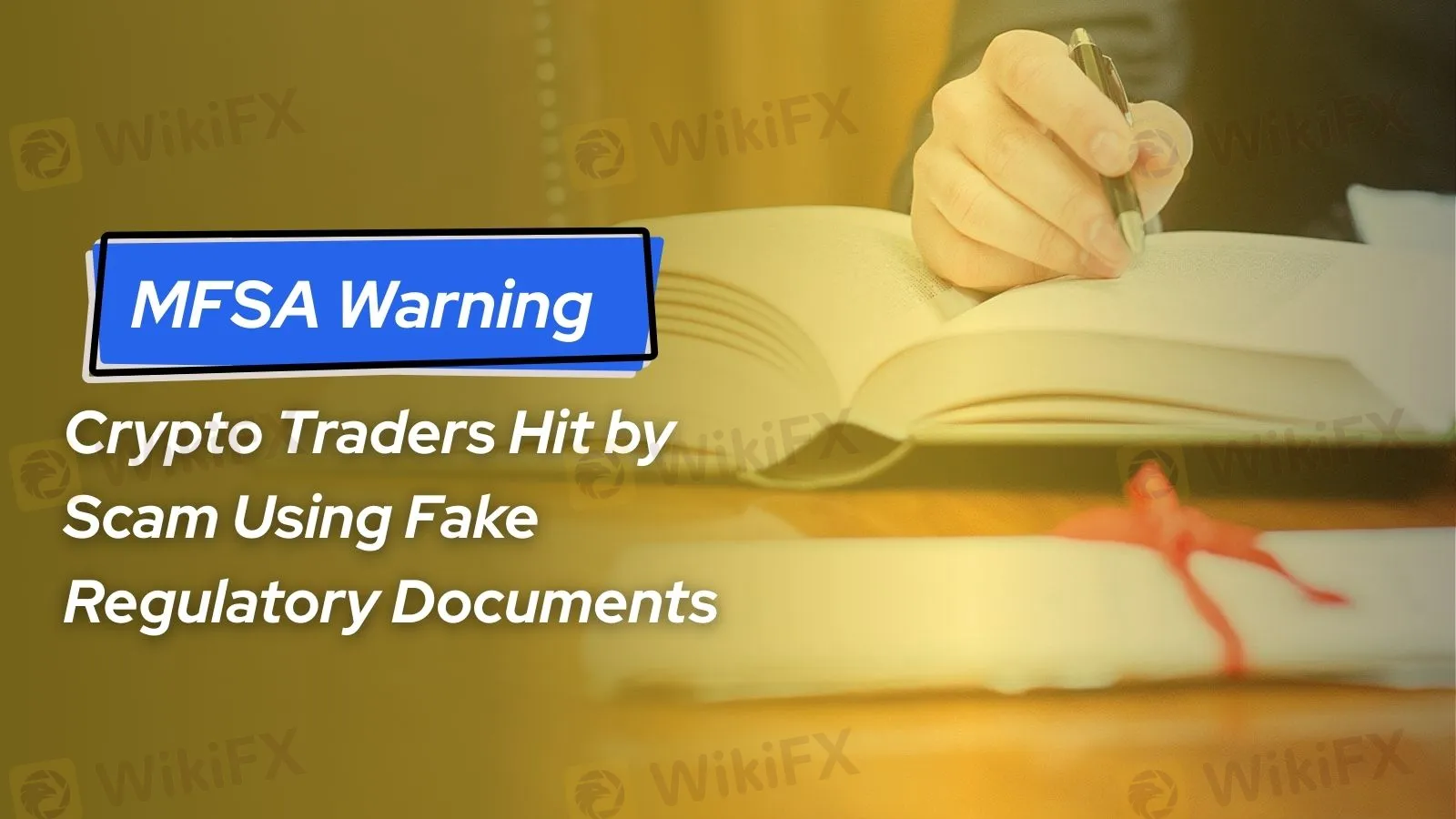简体中文
繁體中文
English
Pусский
日本語
ภาษาไทย
Tiếng Việt
Bahasa Indonesia
Español
हिन्दी
Filippiiniläinen
Français
Deutsch
Português
Türkçe
한국어
العربية
Crypto Traders Hit by Scam Using Fake Regulatory Documents, MFSA Cautions
Abstract:Fraudsters are using MFSA-branded fake documents to scam crypto users, as impersonation of regulators rises globally and document-based scams grow increasingly sophisticated.

Scammers Pose as MFSA Officials to Demand False Fines
A new crypto-related scam has emerged in Malta, targeting digital asset traders with fraudulent documents impersonating the Malta Financial Services Authority (MFSA). The forged letters claim that recipients have committed market manipulation—particularly involving Bitcoin and Ethereum—and must pay regulatory fines.
These fake notices mimic the MFSAs branding, including its logo, formatting, and official signature style. According to the regulator, the documents are entirely false, and the MFSA has issued a public warning urging the public to stay alert. The scam leverages institutional credibility to pressure victims into making payments, often using threats of legal consequences or urgent deadlines to reduce scrutiny.
Other Jurisdictions Report Similar Impersonation Schemes
Maltas warning follows a broader global pattern of scammers using forged government credentials to extract funds from unsuspecting individuals. In the United States, the Commodity Futures Trading Commission (CFTC) previously reported emails falsely accusing crypto users of tax fraud, allegedly sent by its enforcement division. In the UK, the Financial Conduct Authority (FCA) flagged incidents where individuals posed as FCA investigators demanding access to private wallets under the guise of compliance checks.
These impersonation efforts are growing more refined, often using real official names and structures to deceive victims. The tactics show an evolution from typical phishing attempts toward more credible, document-based fraud—making it harder for investors to distinguish scams from legitimate notices.
Investors Urged to Verify and Report Suspicious Communications
In light of the rising threat, the MFSA strongly advises users to verify any correspondence that appears to come from a financial authority. Genuine enforcement actions are not delivered through unofficial emails, nor do they demand immediate payment without proper legal procedure. Individuals are encouraged to cross-check company or enforcement notices using the MFSAs official website or contact lines.
Furthermore, suspicious messages should be reported directly to the MFSAs Financial Crime Compliance Unit. Tools like public regulator databases and verified contact portals remain essential in filtering out fraudulent outreach.
Disclaimer:
The views in this article only represent the author's personal views, and do not constitute investment advice on this platform. This platform does not guarantee the accuracy, completeness and timeliness of the information in the article, and will not be liable for any loss caused by the use of or reliance on the information in the article.
Read more

No Regulation, Revoked Licence: Is Tradehall Safe to Use?
In the fast-growing world of online trading, safety and regulation must always come first. Traders need to choose brokers that are properly licensed and follow the rules. Sadly, not all brokers meet these standards, and Tradehall is a clear example of this.

Retirement Dreams Shattered: Don't Do This To Yourself!
Two retired Malaysian men have collectively lost more than RM1.14 million to fraudulent investment schemes promoted on social media platforms.

Warning: Exclusive Markets Broker Accused of Fraudulent Trading Practices
Trader warns of fraudulent practices with Exclusive Markets, including account manipulation and unjust profit removal. Learn about this latest case of broker misconduct.

ALERT! Morfin FX - The Scammer is Operating without a License
Morfin FX indeed has a nice trading software by which you can trade. But is it a safe bet? Does it carry any license? Can you withdraw money from it? Read our review of this forex broker.
WikiFX Broker
Latest News
Inside MBI: The Billion-Dollar Ponzi Scheme That Shook Malaysia
ZFX: A Closer Look at Its Licences
Should you buy or sell US dollars in the next three to six months?
Tradehall Broker Review 2025: Read Before Trade
XM Rolls Out New Forex Trading Competition Platform for 2025
Tether Freezes $12.3 Million in USDT Over Money Laundering Concerns
MiCA Unlocks EU Crypto Market, but National Tensions Rise as Gemini and Coinbase Near Approval
Retirement Dreams Shattered: Don't Do This To Yourself!
Philippines Sets Southeast Asia’s First Crypto Regulatory Framework
EU Regulators Imposed Over €71M in Sanctions in 2024, ESMA Calls for Enforcement Convergence
Currency Calculator


